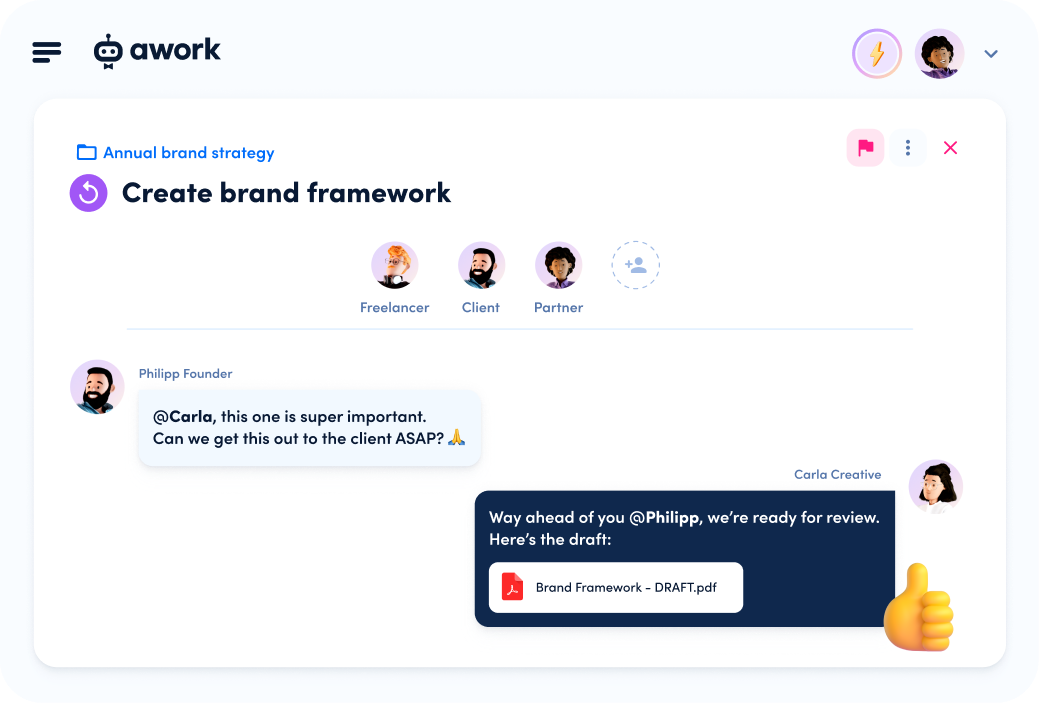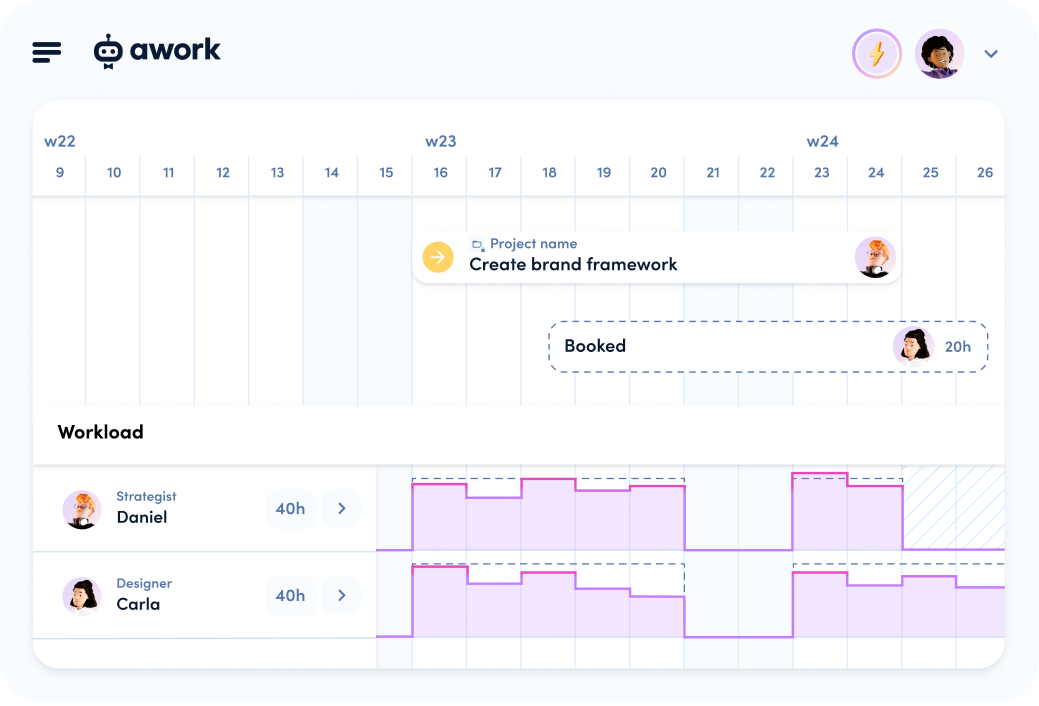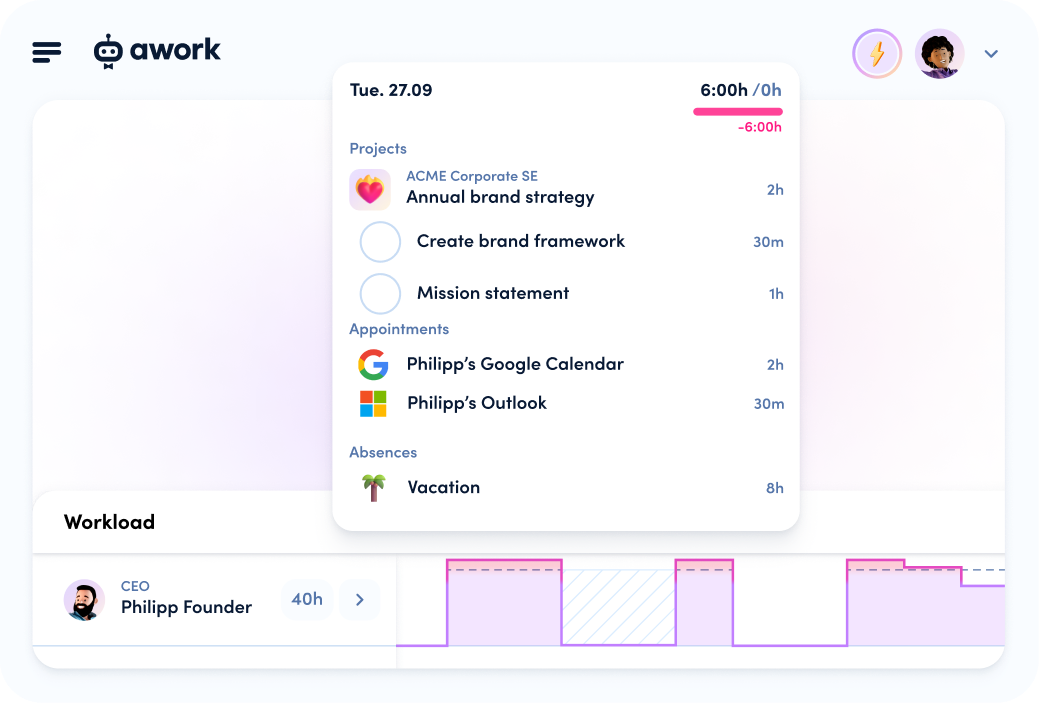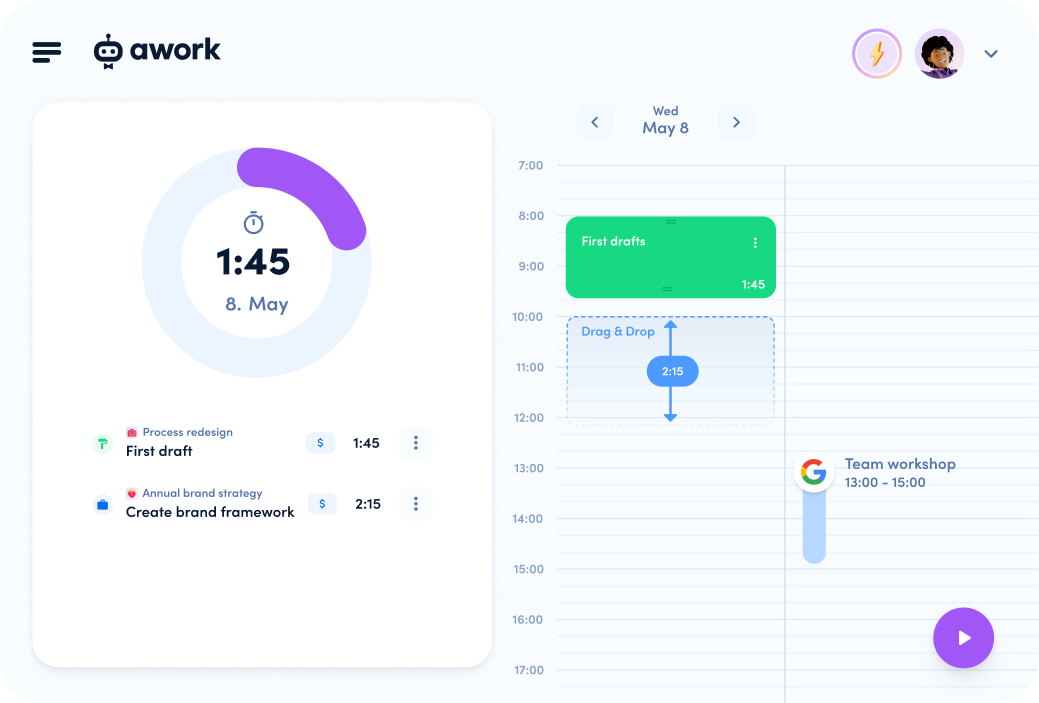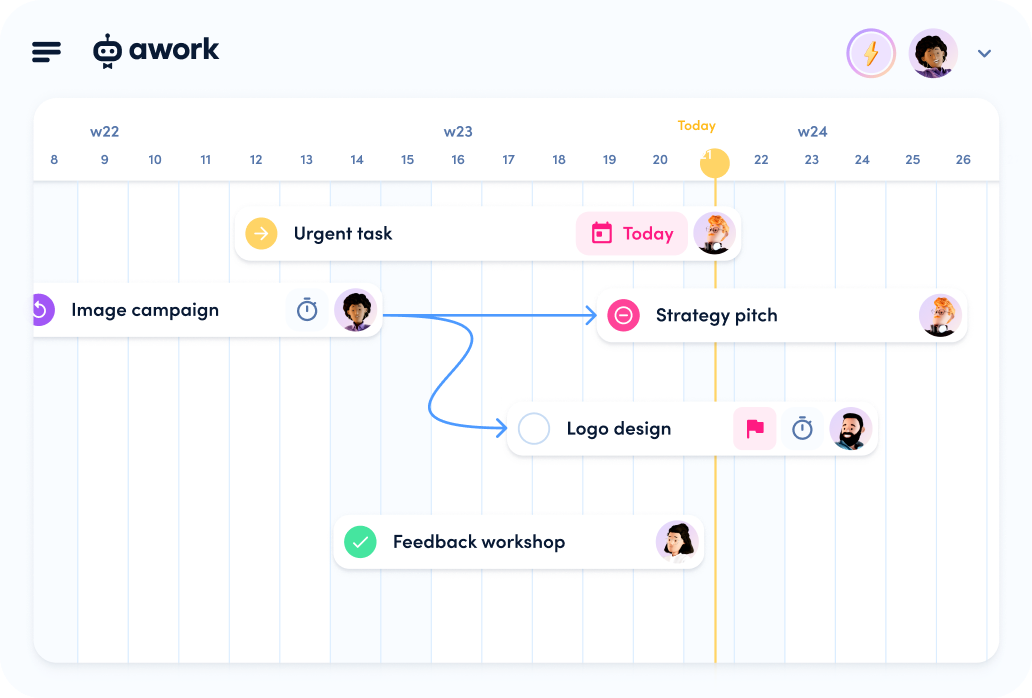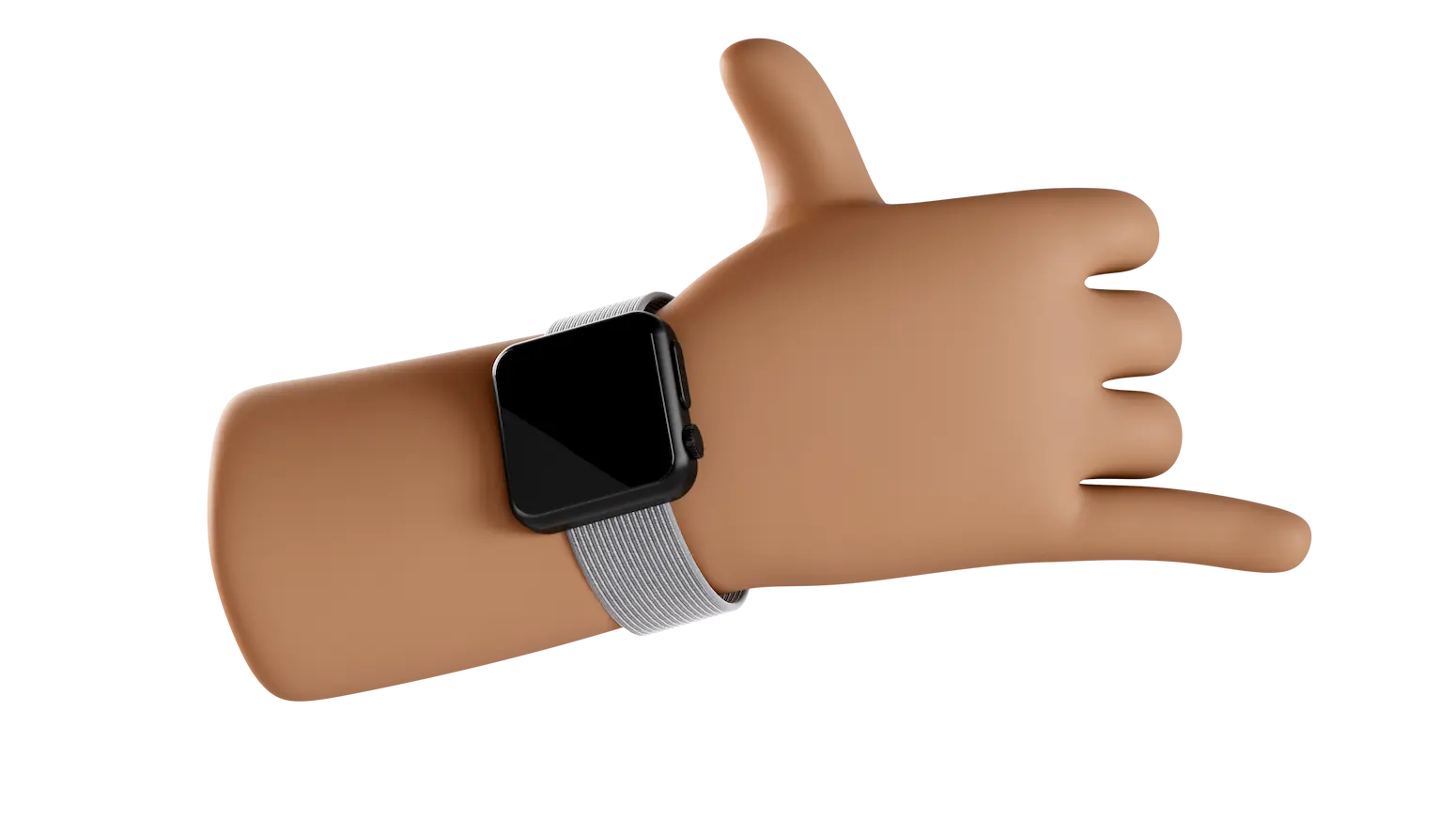Does the following scenario sound familiar to you? Due to current circumstances, you are forced to move your workplace from the office to the home office. The contact with your favorite colleagues is dwindling, and also, the daily chat at the coffee machine is gone.
Suddenly you're even missing the stupid jokes of your colleagues. Instead, you sit alone at home in an untidy mess… And then your boss asks the team to document working hours. What's that all about?
Time tracking is a highly debated topic: some strongly advocate it, others consider it absolute nonsense. In this article, we contrast both perspectives and explain why time tracking makes sense despite all the prejudices.
Time tracking as a means of control
Everyone who deals with the topic of time tracking knows it. A manager who's downright afraid of the home office and is frantically clinging to the ideas of the past. At all costs, they make sure that everyone works well. If a home office is to be used, then it must be combined with meticulous time tracking. Employees are therefore forced to record their working hours. There is too much concern that they will watch Netflix during working hours.
The timer is part of yesterday's working world.
Time tracking as a means of control. This is precisely why so many employees rightly have a negative attitude toward the principle of time tracking. This is understandable because control contradicts New Work and the ownership mentality - no one likes to be controlled and spied on.
What's more, many see the recording of their working hours as an annoying time waster and don't want to go through the extra work of painstakingly entering every single activity. Some are also afraid of not fully meeting the expected performance, whereas others don't take the principle seriously at all, just like the motto: "The time clock is part of yesterday's working world.
Time recording? All nonsense! Or is it?
All these prejudices make one thing clear: Since the reason for time recording is often communicated only inadequately or not at all, many employees see it as spying on their attendance times. Against this background, it is clear that no one wants to enter their working hours constantly.
The actual purpose of time recording lies somewhere else entirely: The goal should be to be able to record productive times and to enable an allocation to individual jobs and projects. It is totally helpful when time tracking serves this purpose instead of serving as a nonsensical monitoring tool.
For example, time tracking helps agency management better estimate the actual staffing needs of a project or even take timely countermeasures in the event of budget overruns. Sounds logical, doesn't it?
What are the real advantages of time tracking - especially in the home office?
We see many advantages in time tracking, as long as the purpose of this method has been discussed in advance and it is not used to control employees. In the long run, recording working hours can help both employees and the company as a whole.
Time tracking is also worthwhile for you in times of remote work. Statistically, people tend to work more in a home office than in an office. Instead of having to do complex calculations, time tracking helps you make overtime clear.
In addition, recording working hours can help promote self-motivating working. Especially in times of New Work, this aspect is no longer irrelevant. Instead of a rigid, directive-based daily routine, employees in the home office should be given the opportunity to organize their time freely. If all working hours are now recorded in relation to tasks instead of just attendance, time-wasters can be better unmasked.
This helps to use one's own working time better and thus to manage one's own capacities. If you want to devote a large part of your time to a specific topic, you also need a method to ensure that you succeed in doing so.
Our co-founder Tobias has also been tracking his working time regularly for years:
"I also track the time I need to complete my tasks. This gives me a detailed insight into which areas of the company I spend my time on. In addition to a much better sense of the actual effort required, I naturally also know the costs of the individual activities. Most importantly - and I would like to emphasize this point - I always have to think about my priorities.
So time tracking also answers the question, "What do you waste your time on?": As time-wasters are cleverly exposed, you can improve your self-control and increase productivity. In addition, a logical breakdown of labor costs becomes more transparent for customers - you work more lucratively and are able to determine individual prices better.
For example, if I resolve to spend at least 50 percent of my working time on strategically relevant topics, I get an immediate assessment of whether I have been successful in doing so. I can also identify topic areas that need new or different process solutions. As an agile team, we want to invest time in projects that actually move us forward. This makes time tracking an irreplaceable tool in the continuous improvement of our productivity."
The main advantages of time tracking
- Increased productivity and self-management
- Improved internal planning
- Efficient work without time wasters
- Overtime becomes clear
- Self-determined work in the home office
- Timely completion of tasks
This is just how the introduction of a time recording system succeeds in your company as well
In order for your company to benefit from the principle of time tracking, the following two criteria must be met: In order not to provoke any misunderstandings, it is important that all parties involved are informed about the benefits of time recording. Therefore, it is essential that the purpose of this method is clearly communicated before implementation.
Also, you should choose a practical tool (such as awork) that makes time tracking super easy. Everyone involved should be able to use it properly, so there is no extra work at all.
Furthermore, it can be useful to offer a workshop for the introduction of a time tracking system, in which the benefits, as well as the advantages of time tracking for the employees and the company, are clearly communicated. The purpose of this workshop is to promote employee acceptance and create transparency.
Time recording in awork
Do you want to take the first step and become friends with time tracking? Good decision! awork is the perfect tool for your team. Thanks to integrated time tracking, you can not only evaluate recorded times super easily but also calculate them instantly.
The time tracking in awork is directly integrated into the project work. It fits seamlessly into your workflow and does not require any additional effort. In total, there are three options for time tracking in awork.

One way to start the time tracking in awork is the timer. You can start your timer for time tracking not only within your projects or on individual tasks but also via the global time tracking. You can activate this from anywhere in awork. It is especially useful for quickly starting new tasks, for example, when you answer a call. Long searching within your projects is a thing of the past. Here you can start directly with just one click and add details even afterward.
A second possibility is to record the working time afterward via the time recording window. There you can easily add the date of your task as well as a start and end time and enter details such as the activity, projects, or notes.

You can also integrate appointments from external calendars, such as Google, Microsoft, or iCloud, into you awork time tracking. Using the icons in each appointment, you can distinguish between the different providers and make a time recording from it with a simple click on the appointment.
All recorded working times can be found in awork in the area My recorded times. In this overview, you can switch between the three views My Day, My Week, and My Times. The loading circle on the left shows you how much of your daily working time you have already recorded. All entries can be easily edited, duplicated, or deleted at any time using Drag-and-Drop so you always have an overview of your times.

Conclusion
We at awork find time tracking absolutely useful and helpful, as long as it is used correctly. The principle of time tracking not only helps you and your team increase your productivity and lets you work much more lucratively but also pays off for the entire company in the long run.
Do you want to enable clear allocations and be able to take appropriate action at any time? With awork, it becomes possible!







